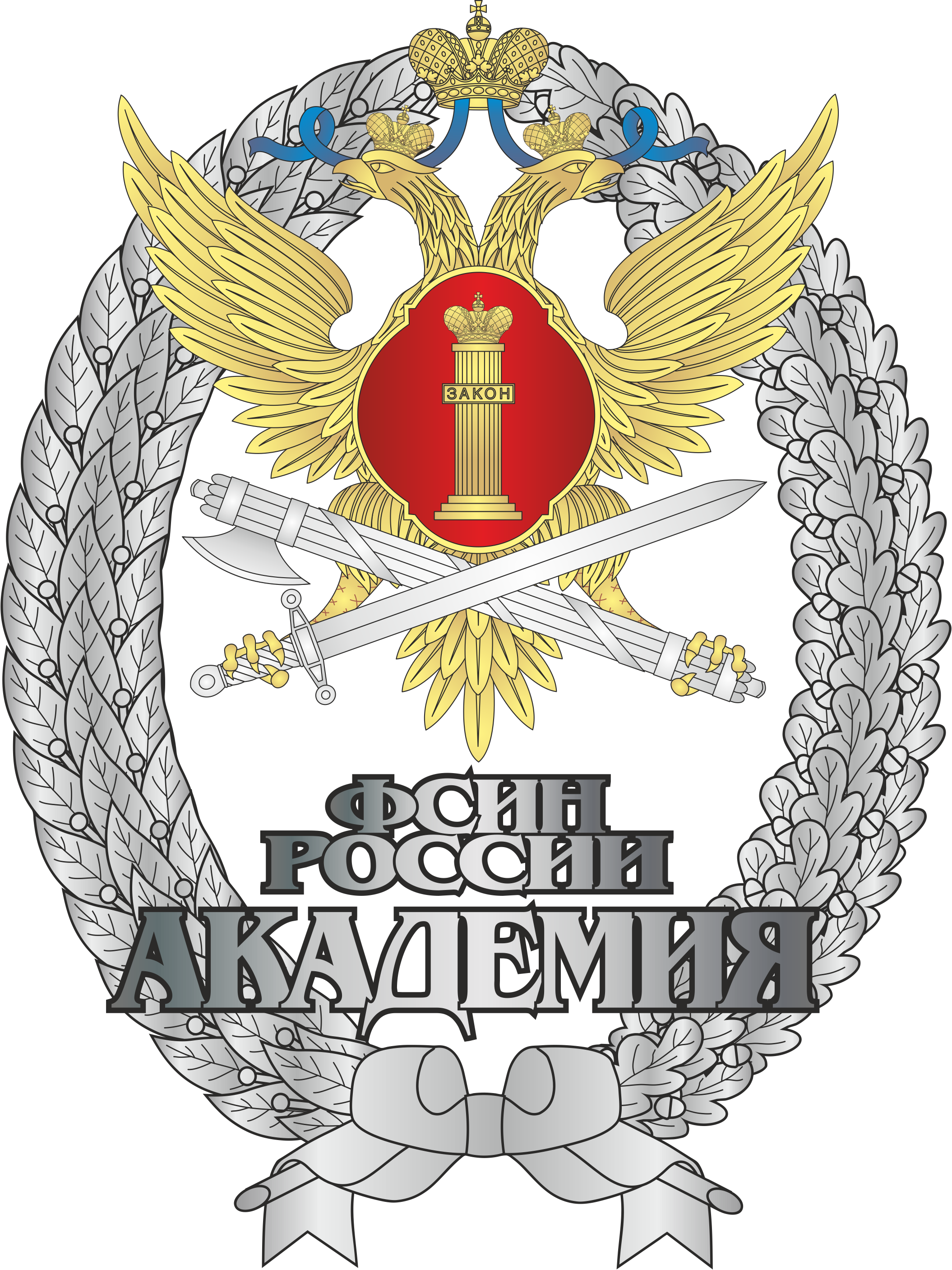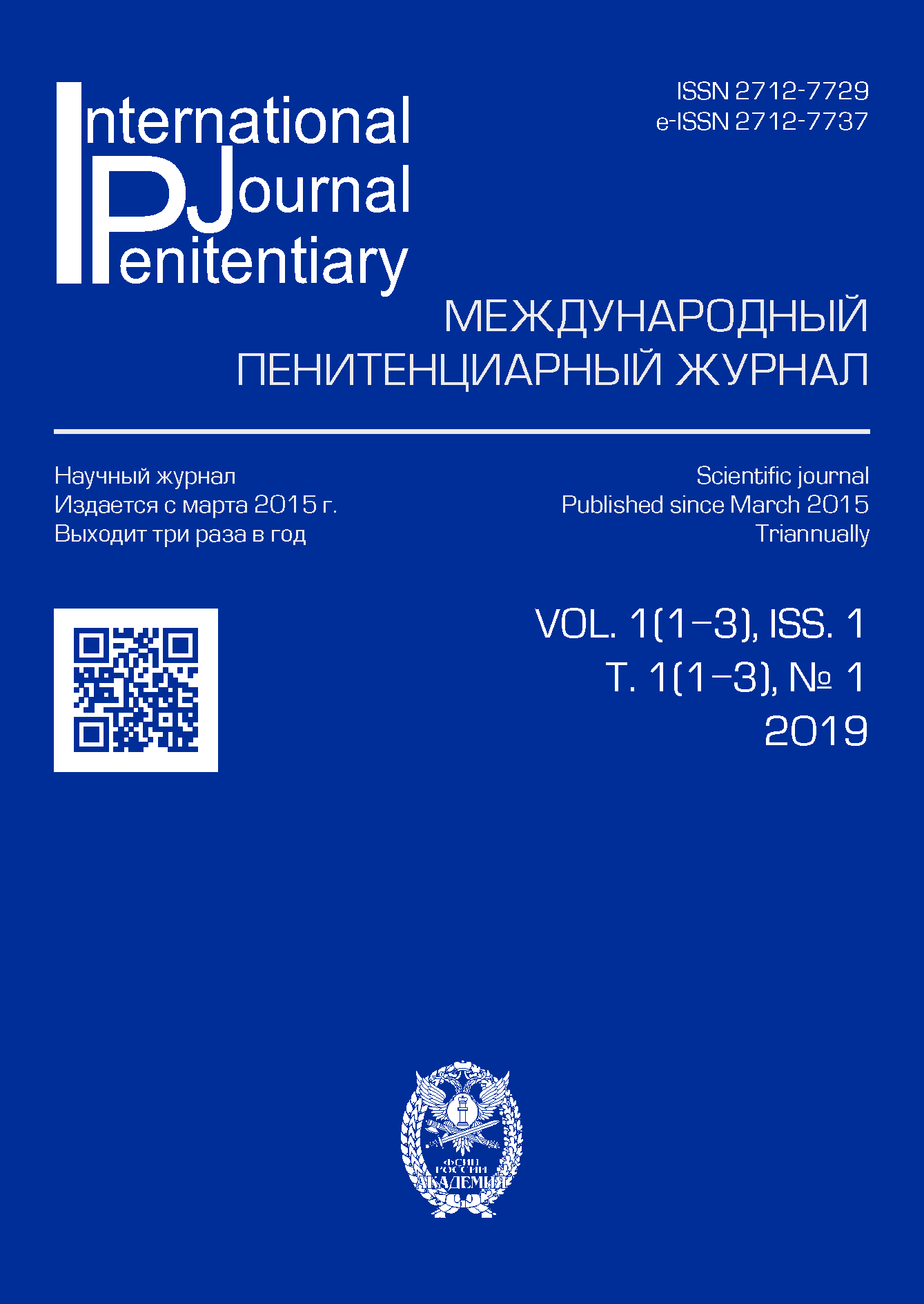Ryazan', Russian Federation
Ryazan', Russian Federation
Karaganda, Kazakhstan
CSCSTI 10.83
The problem of this research work is to improve the efficiency of convicts’ social adaptation through the process of effective employment, training and re-training in correctional institutions, as well as a complex of actions for post-penitentiary support. The object of the study is the existing system of organization of convicts’ work in correctional institutions. The subject of the study is the social and labour relations within the organization of jobs for a specific category of convicted disabled people and people with limited physical abilities. The aim of the study is to create an approximate mechanism for increasing the availability of correctional institutions’ production facilities for the employment of convicted disabled people. This goal predetermined the solution of the following tasks: analysis of the current state of employment of convicted disabled people at correctional facilities; analysis of international, national and departmental legal acts affecting the work organization of people with limited physical abilities; study of the main regulatory and technical requirements for the work organization of convicted disabled people; development of approximate variants of workplaces’ organization and production sites for employment of disabled people on the basis of the existing requirements. The method of research involves the study of general theoretical questions of work organization, the domestic theoretical literature on the problem of convicts’ work organization, normative-legal and normative-technical documents, and analysis of statistical data of the Federal penitentiary service of Russia. The structure of the work is typical. The first part contains a brief theoretical and statistical analysis of the problem. In the second – were covered general questions of convicted disabled people’s workplace organization on the basis of technical, ergonomic, sanitary and hygienic basic requirements. In the third – the requirements for the planning of workplaces and production facilities are analyzed in detail; the approximate options for convicted disabled people’s organization of work are given. The theoretical significance of the study consists in the formation of a systematic view of employment and socio-labour relations in prisons, taking into account the specifics of convicts as a social group. This formation can contribute to the improvement of state policy in the field of convicts’ employment at the federal and regional levels. The practical significance of the work is that the recommendations can be used in the preparation of specific projects of production sites for convicted disabled people’s work organization, in the development of monitoring programs of the existing state of convicts’ work organization, analytical and forecast materials on the employment of convicted disabled people in places of detention, for development of effective measures in the field of regulation of social and labour relations in places of imprisonment and improvement of production and economic activity by authorized bodies of the state power of Penal system, and also streamlining of normative legal and methodical base in the field of convicts’ work organization.
organization of convicts’ labour employment, convicted disabled people, convicts with limited capacity for work, production facilities of correctional institutions, Penal system.
1. Dubrovitsky, L. P. 1997, Socio-legal and organizational issues of labor of convicts to imprisonment in the conditions of development of market relations: PhD (Law) thesis, Moscow.
2. Emelyanova, E. V. 2010, Theoretical, organizational and legal bases of work of convicts in the conditions of reform of the penal system: PhD (Law) thesis, Moscow.
3. Kolosova, R. P. & Melikyan, G. G. (eds) 2008, Employment, labor market and social and labor relations, Moscow.
4. Zubkov, A. I. 1980, Social-legal and organizational problems of labor of convicts to imprisonment, Ryazan.
5. Personnel Economics 2009, Moscow.
6. Konstantinov, I. G. 1982, Introduction of convicts to work. Introduction to the correctional labor economy, Moscow.
7. Starch, L. G. 1963, Prison labor and its legal regulation in the USSR, Saratov.
8. Letunov, V. N. 1991, Socio-economic and legal problems of management of vocational education of convicts to imprisonment: PhD (Economics) thesis, Moscow.
9. Methods of increasing the motivation of convicts to work 2016, vol. 117, Ryazan.
10. Organization of vocational training and work of convicts in the chamber regime of detention 2012, Ryazan.
11. Organization of the process of labor adaptation of convicts in correctional institutions 2010, Vologda.












